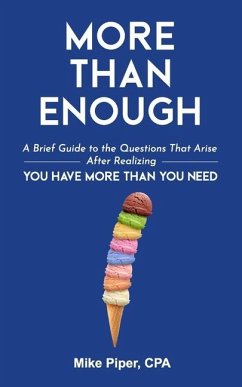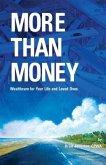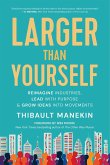Most financial media deals with the topic of accumulating enough savings to cover your expenses throughout your lifetime. Among people who read personal finance books, many are "super savers"-saving a high percentage of their income through most of their careers. One thing that eventually happens for many such people is that they reach a point at which they realize they have not only saved "enough", they have saved "more than enough." Their desired standard of living in retirement is well secured, and it's likely that a major part of the portfolio is eventually going to be left to loved ones and/or charity. That realization raises a whole list of new questions and concerns. Some of those are financial (e.g., how much can I afford to give away to charity during my lifetime?), and some are non-financial (e.g., how should I communicate my estate plan to my intended heirs?). This book's goal is to help you answer those questions that arise when you realize you have accumulated-or are on track to accumulate-more than enough. Part One: Non-Financial Considerations (What's the goal? And why?) 1. Do You Have More Than Enough? 2. Who Gets the Money? 3. Talking with Your Kids or Other Heirs Part Two: Financial Considerations 4. Giving and Spending During Your Lifetime 5. Learning to Spend and Give More 6. Impactful Charitable Giving 7. Impactful Investing 8. Reassess Your Asset Allocation 9. Trusts 10. Asset Protection Part Three: Tax Strategies 11. Qualified Charitable Distributions 12. Donating Appreciated Taxable Assets 13. Deduction Bunching 14. Donor-Advised Funds 15. The Roth Question(s) 16. (State) Estate Taxes 17. Developing a Workable Plan Part Four: Finding Professional Assistance 18. Working with an Attorney 19. Working with a Financial Planner Conclusion: Mission Accomplished. Now What? Afterword: Our Most Limited Resource
Hinweis: Dieser Artikel kann nur an eine deutsche Lieferadresse ausgeliefert werden.
Hinweis: Dieser Artikel kann nur an eine deutsche Lieferadresse ausgeliefert werden.








